
Tag Archive: WKRC
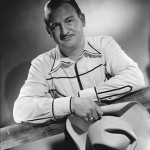
Nelson King: “King” of Cincinnati Disc Jockeys
One hundred years ago this month, August 7, 1914, Charles Schroeder was born in Portsmouth, Ohio. If that name is a bit unfamiliar, it's because he would eventually take the name “Nelson King” and become Cincinnati's most influential disc jockey. The job of “disc jockey,” or an announcer who plays... Continue Reading »
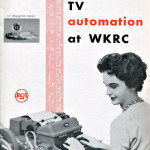
Television Robots
You might not have noticed, but your local television station may have already automated its live studio broadcasts. If not, they probably will in the coming years. Thanks to technological advancements, television stations have installed remote controlled cameras and other equipment for their studio-based news and sports programs. The purpose,... Continue Reading »
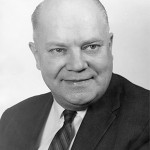
Lee Allen
Not everyone has the good fortune of turning their hobby into a career, but Lee Allen did. Leland Gaither Allen was born in Cincinnati in 1915 and was a regular at old Redland Field as a boy, in part because his father was a lawyer and three term Congressman. The... Continue Reading »
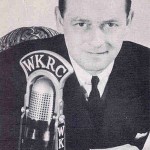
Waite Hoyt
When Waite Hoyt auditioned for a baseball announcing job at Cincinnati's WKRC Thanksgiving weekend 1941, he had already planned with his agent that he would spend only one or two years in the Queen City. Waite had retired a few years before from his (eventual) Hall of Fame pitching career... Continue Reading »
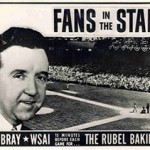
Dick Bray
By the time Dick Bray got into sports broadcasting, he was already well known in the Cincinnati athletics community. Born in Hyde Park, a Cincinnati suburb, in 1903, Bray was a three-sport star at Xavier University. He played 2nd base for the Comello Clothiers 1928 National Amateur Championship baseball team,... Continue Reading »
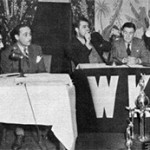
WKRC’s Quiz Bowl
Cincinnati radio listeners of the 1980s, '90s and '00s fondly remember the daily sports segment “Sports or Consequences” on Gary Burbank's WLW program. But did you know Cincinnati was a pioneer in sports quizzing on radio? Back in 1940, a year after the Taft family purchased WKRC, several sports' minded... Continue Reading »
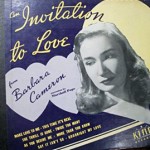
Barbara Cameron
For a period in the mid-to-late 1940s, the name “Barbara Cameron” was everywhere at WLW. The Dayton-born songstress was hired to replace none other than Doris Day in late 1943 and the attractive 18-year-old quickly filled several holes in wartime-depleted WLW’s vocal department. Barbara sang on the popular late-night Moon... Continue Reading »

Did You Know? Radio Station Call Letters
Ever wonder why radio station call letters start with the letters K or W? The reason goes back as early as 1912 and originated with the United States federal government. In 1923 the boundary was set by the Mississippi River and all radio stations to the West were given K... Continue Reading »
Television Musical Chairs
Future broadcast history is being made today in the form of some significant changes in the Greater Cincinnati television business. Recently national media conglomerate Sinclair Broadcasting purchased WKRC television, also known as “Local 12.” This purchase is significant because the station becomes the largest and most influential station in the... Continue Reading »